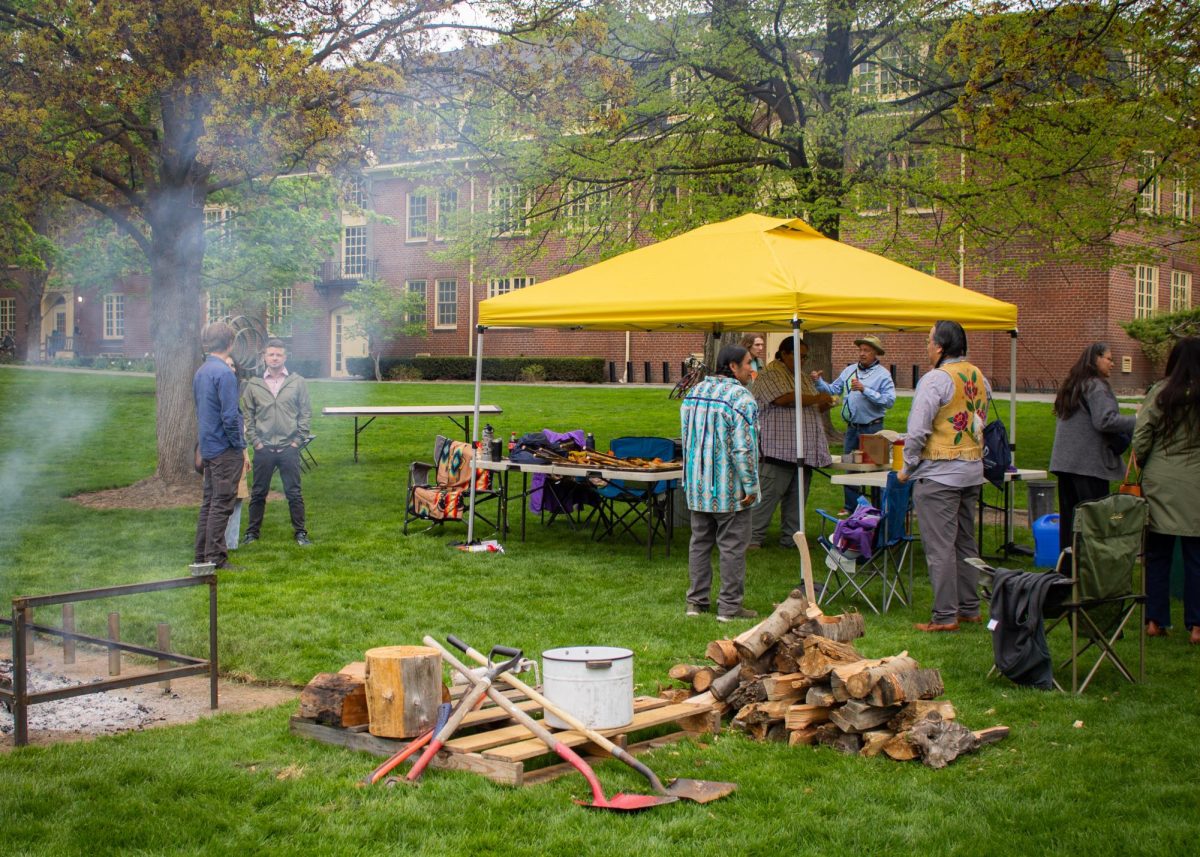We’ve heard about global warming. Water shortages. Peak oil. Failing states and animal extinction. But how often do we consider that these problems are interconnected?
In a lecture entitled “The Ecology of Hope: Creativity in a Finite World,” sustainable design architect Ken Hall spoke to students and community members Monday night about the interrelatedness of these phenomena, leading a discussion on what humans might consider in order to approach: and surpass: sustainability in the future.
The event was at full capacity, with interested students lining the periphery of the conference table, sitting on the floors and standing against the walls.
“I come here tonight not as an expert, but just a human being, talking to other human beings,” said Hall, who works for the world’s largest architectural firm, Gensler Architecture, out of an office in Portland, Ore.
Hall spoke to the importance of reevaluating the way we perceive and approach our role in and with the natural environment. “Many of us have to work. We are locked into a system…we have to earn a living. It is up to each of us as a whole to help this system change.”
Notably, Hall mentioned the Long Now Foundation, a non-profit organization devoted to developing the Rosetta Disk, an archived collaboration of languages intended to consolidate and preserve the world’s languages for the next 10,000 years. According to the Long Now Foundation Web site, “50 to 90 percent of the world’s languages are predicted to disappear in the next century, many with little or no significant documentation.”
Long Now is also in the process of producing multiple clocks that are intended to keep time for 10,000 years. Both innovations mark a new perspective towards sustaining, in this case, information for future generations.
While he represented his architectural firm, Hall’s presentation strayed from architecture and was in large part a survey of different models, or projections of what the world might look like in the future, and what can be done to save it or reverse our actions.
“We’ve really adopted the machine mentality as a way of looking at the world around us,” said Hall.
He emphasized that it is important to stay positive.
“I don’t want to depress you guys. There is a tremendous opportunity here, the question is, ‘How do you motivate people?'” said Hall.
Integral in the conversation was an emphasis on this issue being an unifying cause among human beings.
“This is not a fad,” said Hall. “This is not going away.”
Hall proposed that just as environmental problems are interrelated, solutions concerning them must incorporate partnered efforts among non-profit organizations and other local movements, bureaucracy and government.
“However, in the mean time,” he said, “working at the local level is absolutely the right way to proceed.”
Member of Campus Climate Challenge, senior Katie King cited one example of Whitman College making a step towards transforming our approach to environmentalism. Starting next fall, a sustainability coordinator will be hired on in an internship capacity.
The coordinator will work to ensure that environmental initiatives on campus are successful, working closely with Whitman’s environmental groups and the President’s Office.
“It’s an incremental step but I also think that it’s fundamental in changing how Whitman operates,” said King. “Hopefully, if all goes well, the position will become a full-time staff member the following year.”
“All of the green elements of Whitman life will be coordinated by this individual… this is the way in which messages like this are going to actually transform and involve the institution instead of just being something people are excited about,” said King.
Environmentally conscious community members turned out for the talk as well. Jeff Jones, a member of the group Sustainable Walla Walla, left inspired after being provided with a tangible solution provoked in part by the lecture.
“I think one of the biggest things Walla Walla could really do is lobby intensively to bring back light rail or an Amtrak train so that students and people can get to and from Walla Walla to the urban/metro areas without using an automobile,” said Jones.
“The fact that there are so many people here tonight signals that the campus is interested,” said King.
Incorporating the advice and innovation of individuals from Chief Seattle to Paul Hawkin, Hall emphasized that despite the obvious detrimental effects resulting every day from our current relationship with our natural environment, there is still hope.
“We need to see with our hearts and see with a new set of eyes,” said Hall.
This event was sponsored by the Whitman College Career Center.








